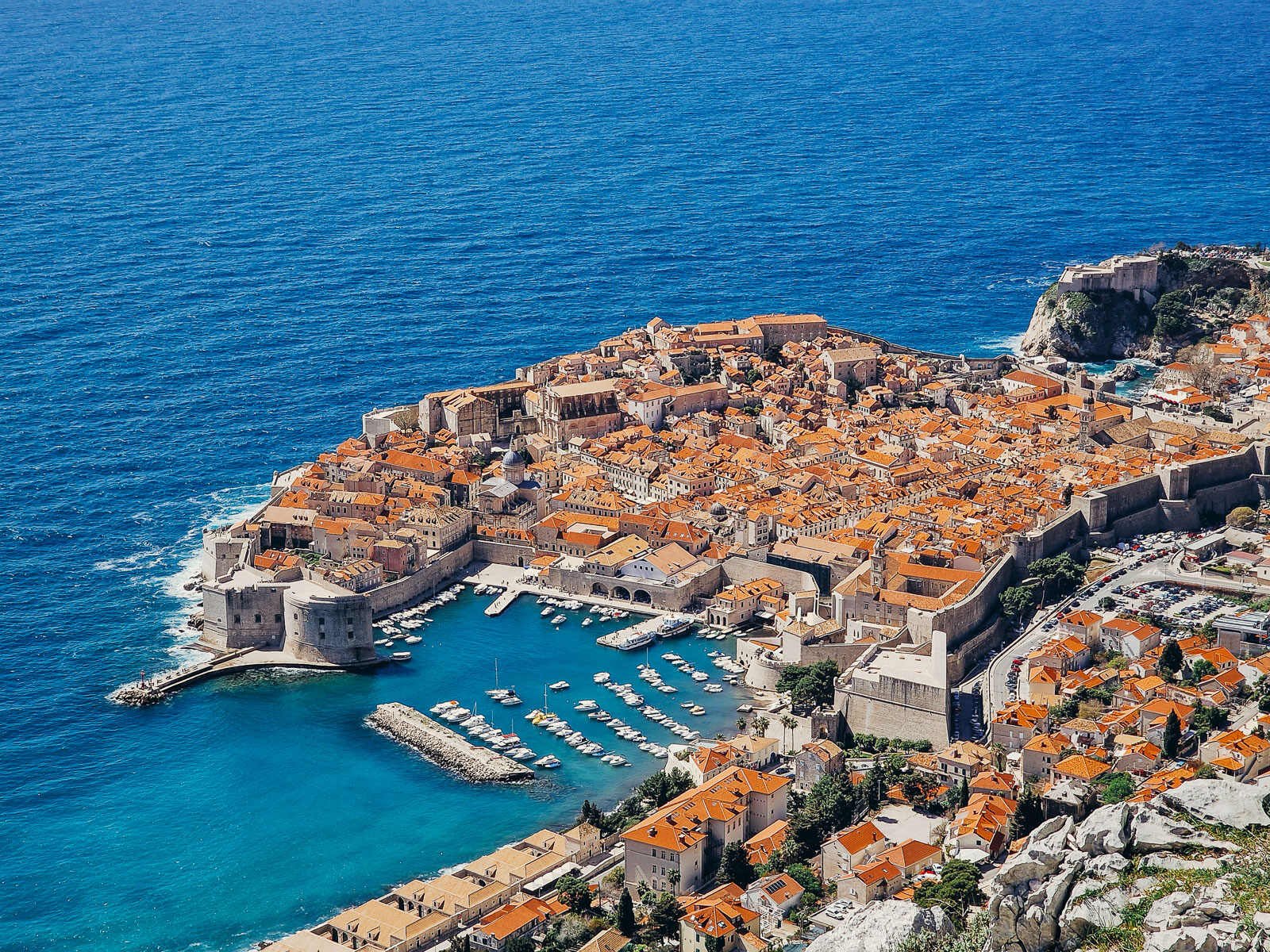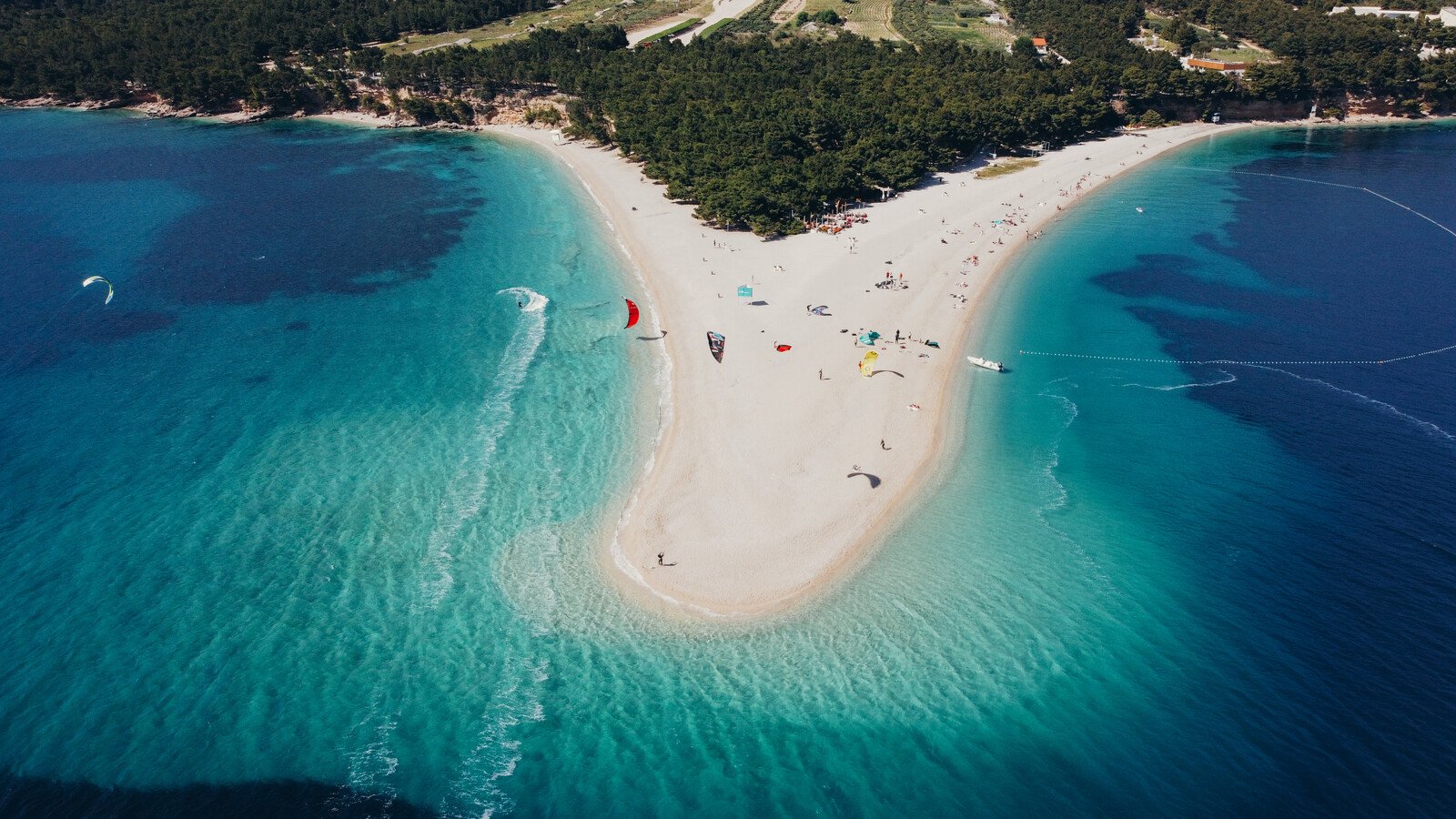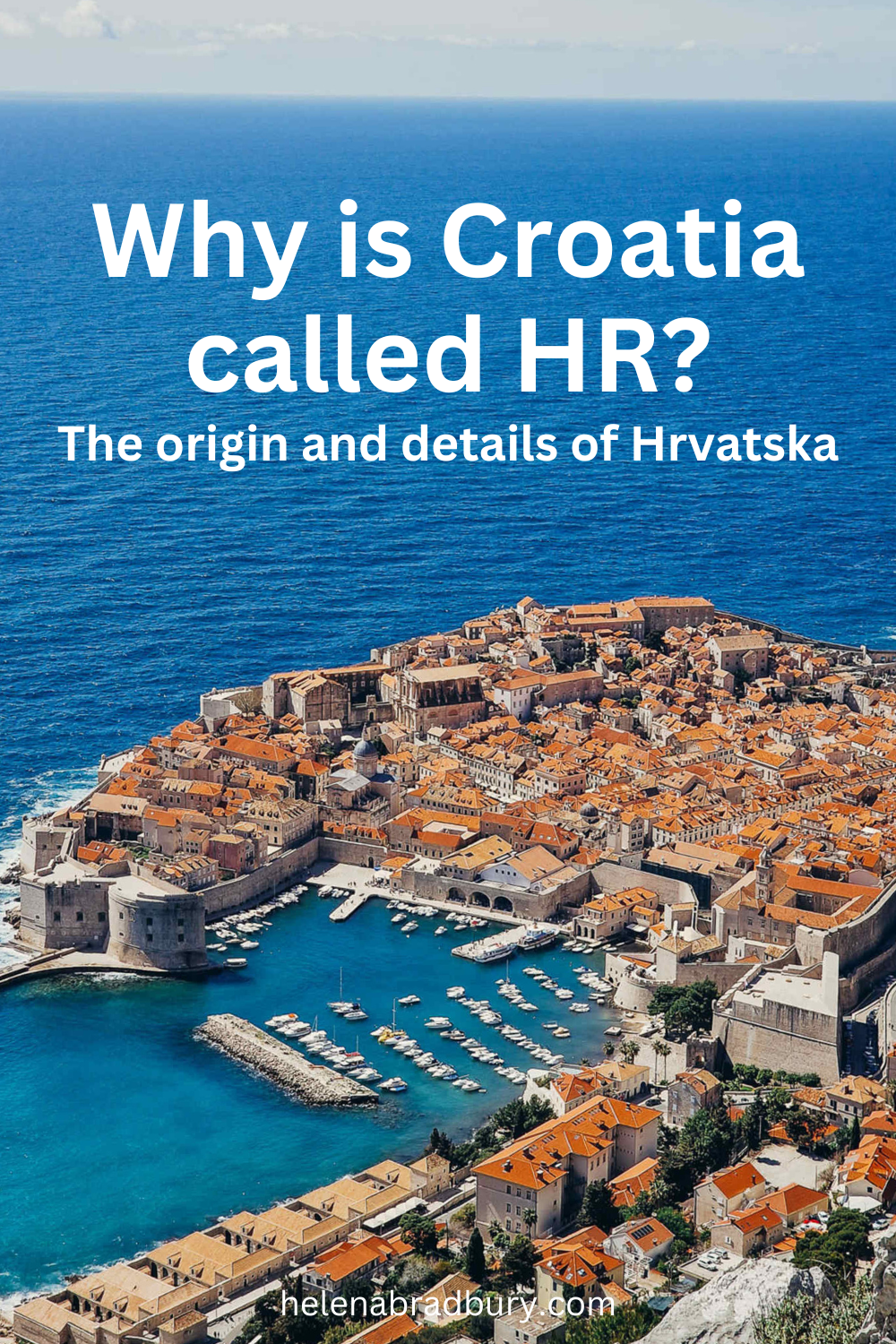We moved to Croatia in 2022 and after road tripping across Europe and seeing the car license plates with the country codes for each EU country vehicle, we were surprised to see Croatia vehicles have “HR” on their vehicle number plates.
So why is Croatia HR?
Like me, have you ever wondered why the abbreviation for Croatia is HR instead of something more obvious like CR or CO?
After living in the country for over a year, hopefully I have a bit more insight into why Croatia is HR - if you’ve ever found yourself wondering why!
Dubrovnik
Disclosure: This post may contain affiliate links, which means I may receive a commission if you click a link and purchase something. While clicking these links won't cost you anything, they will help me to keep this site up and running! Check out the full disclosure policy for more details. Thank you so much!
Why is Croatia HR?
Short answer: The abbreviation HR comes from "Hrvatska," which is the native name for Croatia in the Croatian language.
The abbreviation "HR" for Croatia is derived from its official international country code, which is part of the ISO 3166-1 alpha-2 standard. Each country is assigned a unique two-letter country code for various international purposes, such as internet domain names, vehicle registration codes, and international dialling codes.
In the case of Croatia, "HR" stands for "Hrvatska" in the Croatian language, which is the native name of the country. Croatia gained independence from the former Yugoslavia in 1991 and adopted this abbreviation to represent itself in international contexts. This code is commonly used in internet domain names (such as .hr), vehicle registration plates, and other international identifiers to distinguish Croatia from other countries.
Golden Horn Beach on Brac Island
Where does the Croatia Hrvatska come from?
The name "Hrvatska" (Croatia) has its origins in the history of the Croatian people and their land. The etymology and historical development of the name are complex as there has been a huge influence on the language from various cultures.
Early Origins:
The Croatian people have inhabited the region known as present-day Croatia for over a thousand years.
The earliest known use of the term "Hrvati" to describe the Croatian people dates back to the 9th century during the time of the Great Moravian Empire.
Roots of the name:
The exact origin of the name "Hrvati" is not definitively known, but there are several theories:
Some linguists suggest that it may have Celtic or Illyrian roots.
Others say that it might be related to the Old Slavic word "hrv," which means "to fight" or "to wage war." This interpretation could be connected to the warrior ethos of the early Croatian tribes.
Medieval history:
Croatia emerged as a distinct kingdom in the early medieval period, known as the Kingdom of Croatia.
In 925 AD, King Tomislav was crowned as the first king of Croatia, marking a significant milestone in the history of the Croatian state.
Foreign influence:
Throughout its history, Croatia experienced various influences from neighbouring powers, including Hungary and the Byzantine Empire. The name "Croatia" has been recorded in various forms in different languages due to these historical interactions.
Modern Croatia:
The name "Hrvatska" became the official name of the country when Croatia declared independence from Yugoslavia in 1991.
Prior to that, during the existence of Yugoslavia, the Croatian region was known as the "Socialist Republic of Croatia."
Today, "Hrvatska" is the native and official name of the country in the Croatian language. The name reflects the historical and cultural heritage and identity of the Croatian people and their long-standing presence in the region.
The historic Dubrovnik Old Town
Quick facts about Croatia HR
1. Croatian is one of the oldest native languages in Europe:
Croatian is one of the oldest native languages in Europe that is still spoken today. It has its roots in the Old Church Slavonic language and has been continuously evolving for over a thousand years.
2. The Croatian language has three main dialects:
Croatian can be broadly divided into three main dialects: Kajkavian, Chakavian, and Shtokavian. The Shtokavian dialect is the basis for the standard Croatian language, but the other two have had significant historical and regional influence.
3. The accents in Croatian language are called diacritics
The Croatian language uses the Latin alphabet, but it includes several diacritic marks (accents) that change the pronunciation of letters. These diacritics include č, ć, ž, š, đ, and dž. They are essential for correctly pronouncing words in Croatian.
4. Croatian is both a phonetic and phonemic language:
Croatian is known for its phonemic nature, where each letter corresponds to a specific sound, making it relatively easy to read and pronounce once you know the rules. The diacritic marks (accents) play a crucial role in pronunciation.
5. There is a strong preservation of vocabulary in Croatia:
The Croatian language places a strong emphasis on preserving its native vocabulary, even when borrowing words from other languages. There's a conscious effort to create Croatian equivalents for foreign words to maintain linguistic purity.
6. Croatia’s cultural heritage:
The Croatian language is not only a means of communication but also a significant cultural symbol. It is intertwined with Croatia's history, literature, and identity, and it has played a central role in shaping the nation's cultural heritage. Notable figures in Croatian literature include Marko Marulić and Petar Zoranić. The language has a well-established canon of poetry, novels, and plays.
7. Serbs and Croatians can understand each other
Croatian is a standardised form of the Serbo-Croatian language, which was once the common language of Yugoslavia. While Croatian and Serbian have differences in vocabulary, pronunciation, and some grammar, speakers of one language can generally understand and communicate with speakers of the other.
Visiting Croatia Hrvatska
I’ve lived in Croatia for over a year, so if you’re thinking about visiting I’ve got plenty of recommendations for your trip to Croatia.
Don’t miss highlights in Split, Dubrovnik, Zadar, Sibenik or Zagreb for a city trip.
Hvar, Brac, Korcula, Mljet and Pag are some of the amazing islands to visit.
Don’t miss iconic Croatia landmarks like Plitvice Lakes National Park, Dubrovnik activities, Rovinj’s beautiful Old Town, Krka National Park or Makarska Riviera.
Croatia Hrvatska: where does HR come from in Croatia?
Hopefully this quick guide has answered your questions about why Croatia is referred to as HR for its international code rather than CR or CRO.
The HR is short for Hrvatska which how “Croatia” is pronounced in the Croatian language.
Now you have a fun fact for your next pub quiz!



